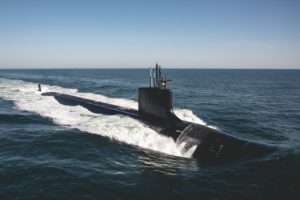
The Pentagon’s No. 2 military official said Friday the U.S. does not intend to “cut off any allies” as a result of its formation of a new trilateral security partnership with the U.K. and Australia, which has received pushback from France over its exclusion and the subsequent loss of a potential $90 billion submarine contract. “I can tell you since the U.K. is a member of NATO and Australia is not and we are, that NATO will be involved in…

 By
By 











